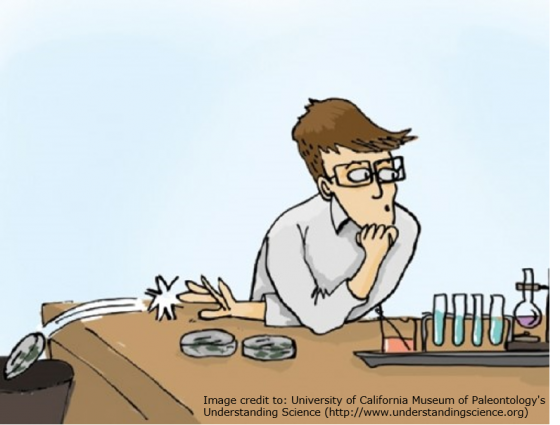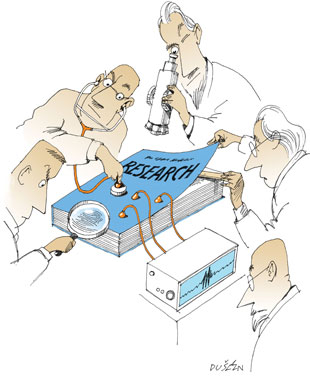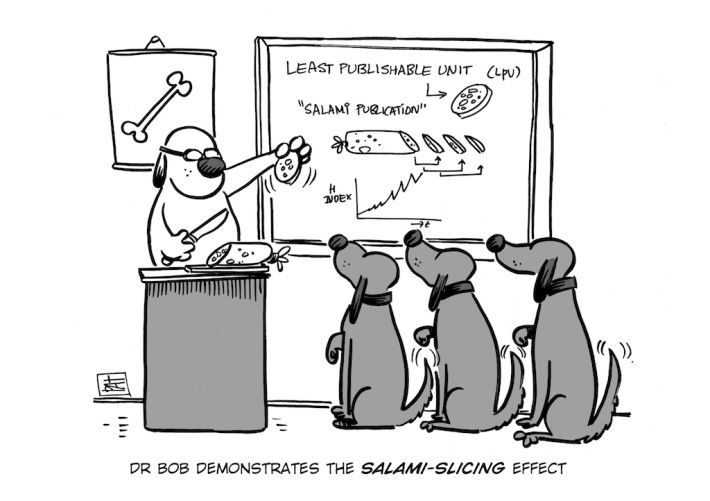Research
ethics means that when research activities have some social nature and
their results have an impact on society, the society should give some
norms to its members, especially to the scientific community, and
control them appropriately. Normally, thinking and research are the
unique and free activities of the researcher, and it seems unreasonable
that they should be controlled in some way from the outside (see regulatory science.).
However, it is always possible for research to cause harm to other
members of society, regardless of the quantity, number, or variety of
its quality. Since research ethics is an intervention against such
risks, some kind of future prediction and "harm prevention" based on such prediction are necessary (see harm priciple).
Furthermore, when research advocates the social mission of "making
human-being happy" and is approved by society and receives research
funding and moral support, it is inevitable that
the researchers themselves or their research groups formulate and
comply with research ethics norms and demonstrate their stance to
society.
When
I lecture on Research Ethics for young and old friends, I will first
confirm our three axioms.
 |
When we conduct any kind of research , we need profess at least three objectives before both our colleagues and public; 1. We need our general trust between researchers, 2. We should maintain norms that our society has given as professional sincerity, and 3. Through our daily activity, we have been expected to conduct righteously for the public. |
| https://www.research.uky.edu/research-misconduct | |
 |
These
objectives are same as norms and/or rules, because the social problems
will be occurred without these requisiteness. +1. We will lost trust between our colleagues, +2. Professionals may ordinarily misconduct, and +3. Through private profit pursuit, we will forget the presence of the public. |
| Misconduct Around the Globe, https://www.the-scientist.com/critic-at-large/misconduct-around-the-globe-39243 | |
 |
Then what kinds of social problems will be
come with these insincerity. ++1. Not only that we researchers distrust each other, but that society also might distrust us, ++2. Society will lost the capacities against misconducts by researchers, and ++3. The victims will be produced by researchers'' misconducts, and also the stereotypes of evil scientists will be distributed. That is the reason why I would give you lectures on Research Ethics in English in my class. |
| UGent commission on Research Integrity |
There are various types of scientific misconduct...(in Japanese)
1) Falsification,
KAIZAN in Japanese (改竄)
2) Fabrication,
NETSUZO in Japanese (捏造)
3) Plagiarism,
HYOSETSU in Japanese (剽窃)
4) Data theft,
DETA NO SETTOU (データの窃盗)
5) Gift
authorship, MEIGI-GASHI in Japanese (名義貸し)
6) Honorary authorship, MIIYO-CHOSHA in Japanese (名誉著者)
and othes.
The US Office of Research Integrity and other institutions define these words of misconducts mentioned below.
| 1) Falsification, KAIZAN in Japanese (改竄) | 1) Falsification is manipulating research materials, equipment, or processes, or changing or omitting data or results such that the research is not accurately represented in the research record. |
| 2) Fabrication, NETSUZO in Japanese (捏造) | 2) Fabrication is making up data or results and recording or reporting them. |
| 3) Plagiarism, HYOSETSU in Japanese (剽窃) | 3) Plagiarism is the appropriation of another person's ideas, processes, results, or words without giving appropriate credit |
| 4) Data theft, DETA NO SETTOU (データの窃盗) | 4) Data theft is the act of stealing information stored on computers, servers, or other devices from an unknowing victim with the intent to compromise privacy or obtain confidential information. |
| 5) Gift authorship, MEIGI-GASHI in Japanese (名義貸し) | 5) Gift authorship' is one of the most common kinds of unethical behaviour seen in academic publishing. In this practice, an author is added to a paper when they have not actually made a contribution to the work, perhaps to reward a collaborator, return a favour, or for some other gain. |
| 6) Honorary authorship, MIIYO-CHOSHA in Japanese (名誉著者) | 6) Honorary authorship, also known as guest authorship, occurs when a person is listed as an author who has not provided any significant assistance to the study. |
The explanation of
this page is over. Thank a lot to participate this lesson.
Links
Bibliography
- On being a scientist : a
guide to responsible conduct in research / Committee on Science,
Engineering, and Public Policy, National Academy of Sciences, National
Academy of Engineering, and Institute of Medicine of the National
Academies, National Academies Press , 2009
Other informations